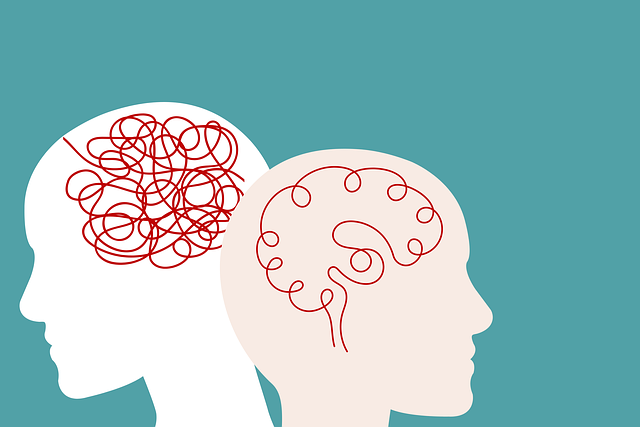Westminster EMDR Therapy: Workshops for Sustainable Well-being
At Westminster, we recognize that stress management is an integral part of overall well-being. That’…….
In the ever-evolving landscape of mental health treatment, Westminster EMDR Therapy has emerged as a powerful and innovative approach, offering hope and healing to individuals dealing with traumatic experiences. This comprehensive therapy model integrates aspects of Eye Movement Desensitization and Reprocessing (EMDR), cognitive behavioral techniques, and mindfulness practices to address complex psychological issues. By delving into this article, readers will gain a profound understanding of Westminster EMDR Therapy’s mechanisms, its global impact, the economic considerations it entails, technological advancements shaping its future, and much more.
Definition:
Westminster EMDR Therapy is a therapeutic intervention that builds upon the foundational principles of EMDR, combining it with elements from cognitive behavioral therapy (CBT) and mindfulness practices. It aims to help individuals process traumatic memories, reduce symptoms of post-traumatic stress disorder (PTSD), and promote overall emotional well-being.
Core Components:
Historical Context:
The roots of Westminster EMDR Therapy can be traced back to the late 20th century when Francine Shapiro developed EMDR as a therapeutic approach to process traumatic memories. Over time, this method evolved and gained recognition for its effectiveness in treating PTSD. The term ‘Westminster’ is not a formal designation but rather an umbrella term used to describe the integration of EMDR with other evidence-based practices, emphasizing a holistic healing approach.
International Adoption:
Westminster EMDR Therapy has gained global traction, with its presence extending across continents. Countries such as the United Kingdom, Australia, Canada, and many European nations have embraced this therapeutic model, leading to increased research and clinical applications.
Cultural Adaptations:
As it spreads worldwide, Westminster EMDR is undergoing cultural adaptations to suit diverse populations. Therapists are refining techniques to accommodate language barriers, incorporate cultural nuances, and ensure the therapy remains sensitive to various ethnic and racial backgrounds.
Key Trends:
Market Dynamics:
The global mental health care market, driven by increasing awareness and investment in psychological treatments, presents a favorable environment for Westminster EMDR Therapy’s growth. The demand for effective trauma-focused therapies is propelling the market forward, creating opportunities for therapists and healthcare providers specializing in this approach.
Investment Patterns:
Private investors and venture capital firms are increasingly allocating funds to mental health startups and therapeutic innovations, including those related to Westminster EMDR. This influx of capital supports research, training programs, and the development of specialized clinics offering this therapy.
Healthcare System Integration:
Many healthcare systems are recognizing the value of Westminster EMDR Therapy as a cost-effective and efficient treatment option for trauma-related conditions. As a result, some national health services are incorporating this approach into their guidelines and protocols, ensuring its availability to a broader patient population.
Digital Tools:
Technology plays a pivotal role in enhancing Westminster EMDR Therapy. Digital platforms and mobile applications are being developed to support self-help practices between therapy sessions, encourage mindfulness exercises, and provide resources for emotional regulation. These tools offer clients greater accessibility and continuity of care.
Virtual Reality (VR) Therapy:
The integration of VR technology allows therapists to create simulated environments that can help patients confront and process traumatic memories in a safe and controlled manner. This innovative approach has shown promise in treating various trauma-related disorders, expanding the toolkit for Westminster EMDR practitioners.
Data Analytics:
Advanced data analytics techniques are being applied to understand patient outcomes and treatment effectiveness in Westminster EMDR Therapy. These methods enable researchers and clinicians to identify patterns, measure progress, and personalize treatment plans, ultimately improving therapeutic outcomes.
Global Regulatory Frameworks:
The regulation of mental health practices varies across countries. Some nations have specific guidelines for EMDR therapy, while others incorporate it under broader cognitive behavioral therapy regulations. Ensuring compliance with local laws is essential for therapists providing Westminster EMDR services.
Licensing and Certification:
Professional organizations and regulatory bodies issue licenses and certifications for mental health practitioners offering EMDR therapy. These credentials ensure that therapists have the necessary training and expertise to deliver effective treatment. Examples include the EMDR International Association (EMDRIA) and regional psychological associations.
Insurance Coverage:
Insurance policies regarding EMDR therapy vary, with some providers covering it fully or partially. Understanding insurance coverage is crucial for both clients and therapists to ensure accessibility and financial feasibility of treatment.
Main Challenges:
Criticisms and Solutions:
Case Study 1: Overcoming Childhood Trauma:
Sarah, a young adult, sought treatment for persistent nightmares and flashbacks related to childhood sexual abuse. Through Westminster EMDR Therapy, she worked with her therapist to identify and process the traumatic memories. By integrating cognitive restructuring techniques, Sarah challenged the negative beliefs she had formed about herself. After several sessions, she reported significant reductions in her symptoms and an improved sense of self-worth.
Key Takeaways:
Case Study 2: Treating Complex PTSD in Veterans:
John, a military veteran, struggled with complex PTSD stemming from his tour of duty in a war zone. He enrolled in a specialized Westminster EMDR program designed for veterans. Through this therapy, John was able to process traumatic memories and reduce the intensity of his flashbacks. The therapists utilized VR technology to recreate stressful situations, providing a safe environment for processing.
Lessons Learned:
Emerging Areas of Growth:
Strategic Considerations:
Westminster EMDR Therapy represents a significant milestone in the evolution of mental health treatment, offering hope and healing to countless individuals. Its integration of EMDR, CBT, and mindfulness practices has proven effective in addressing trauma and its subsequent impact on psychological well-being. As this therapy model continues to gain global recognition, ongoing research, cultural sensitivity, and accessible healthcare systems will be pivotal in maximizing its potential.
By delving into the intricacies of Westminster EMDR Therapy, readers have gained valuable insights into its mechanisms, impact, and future prospects. This article serves as a comprehensive guide, encouraging further exploration and fostering a deeper understanding of this transformative approach to mental health care.
Q: What is the primary goal of Westminster EMDR Therapy?
A: The primary goal is to help individuals process traumatic memories, reduce symptoms of PTSD, and promote overall emotional healing and well-being.
Q: How does Westminster EMDR Therapy differ from traditional talk therapy?
A: Unlike traditional talk therapy, which primarily focuses on conversation, Westminster EMDR incorporates bilateral stimulation (like eye movements) during therapy sessions to facilitate the brain’s natural healing process for traumatic memories.
Q: Is this therapy suitable for all age groups?
A: Yes, while it has been extensively studied in adults, there is growing evidence supporting its use with adolescents and children as well, particularly when adapted to suit their developmental needs.
Q: Can Westminster EMDR Therapy be done remotely?
A: Absolutely. The nature of many therapy sessions lends itself well to telehealth platforms, allowing individuals in remote areas or with limited mobility to access this treatment.
Q: How long does it typically take to complete the therapy?
A: The duration varies depending on the individual’s specific needs and the severity of their condition. Typically, a course of Westminster EMDR Therapy can range from several weeks to a few months.

At Westminster, we recognize that stress management is an integral part of overall well-being. That’…….

Westminster EMDR Therapy emphasizes harm minimization through rigorous risk assessment and tailored…….